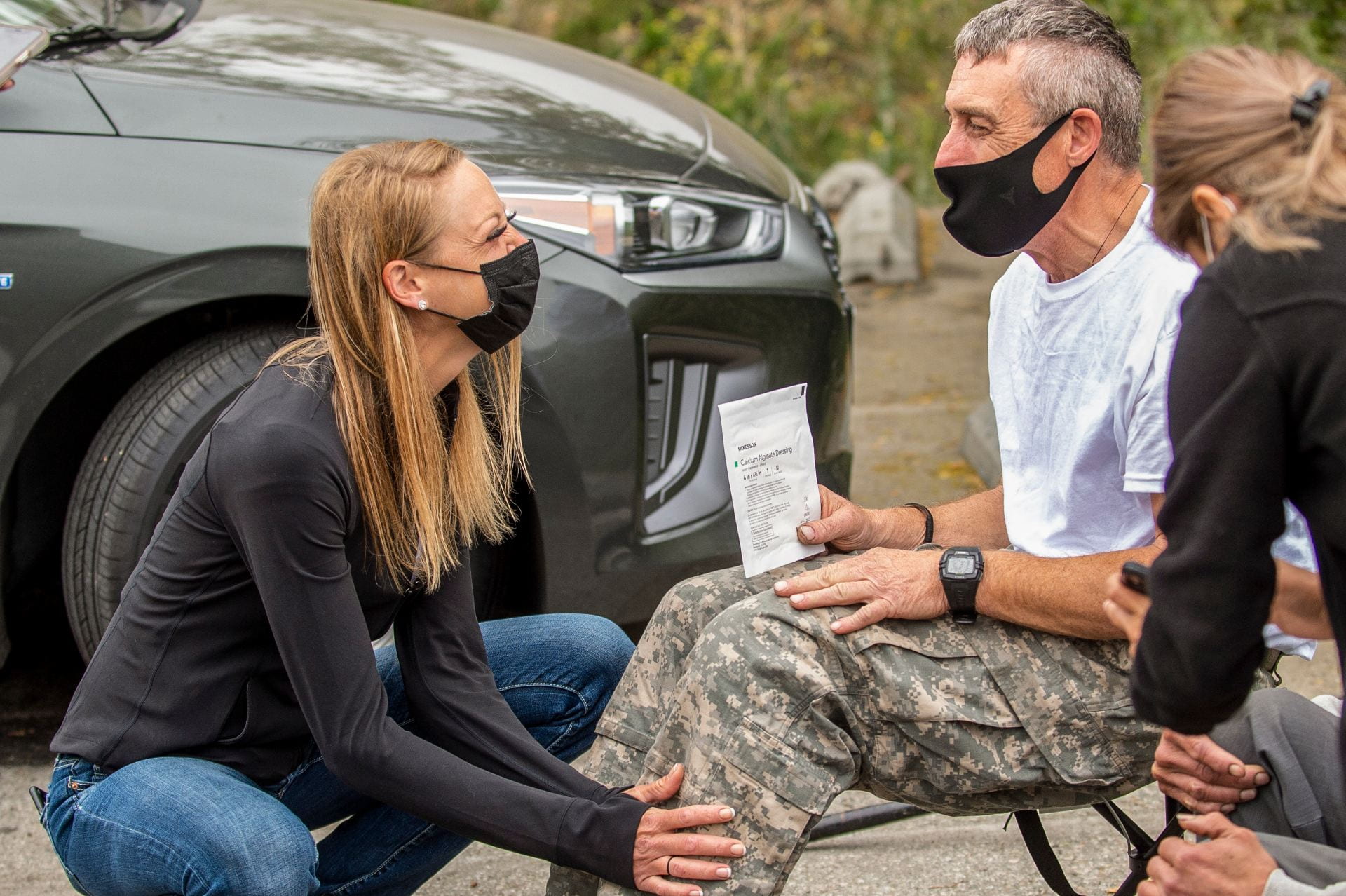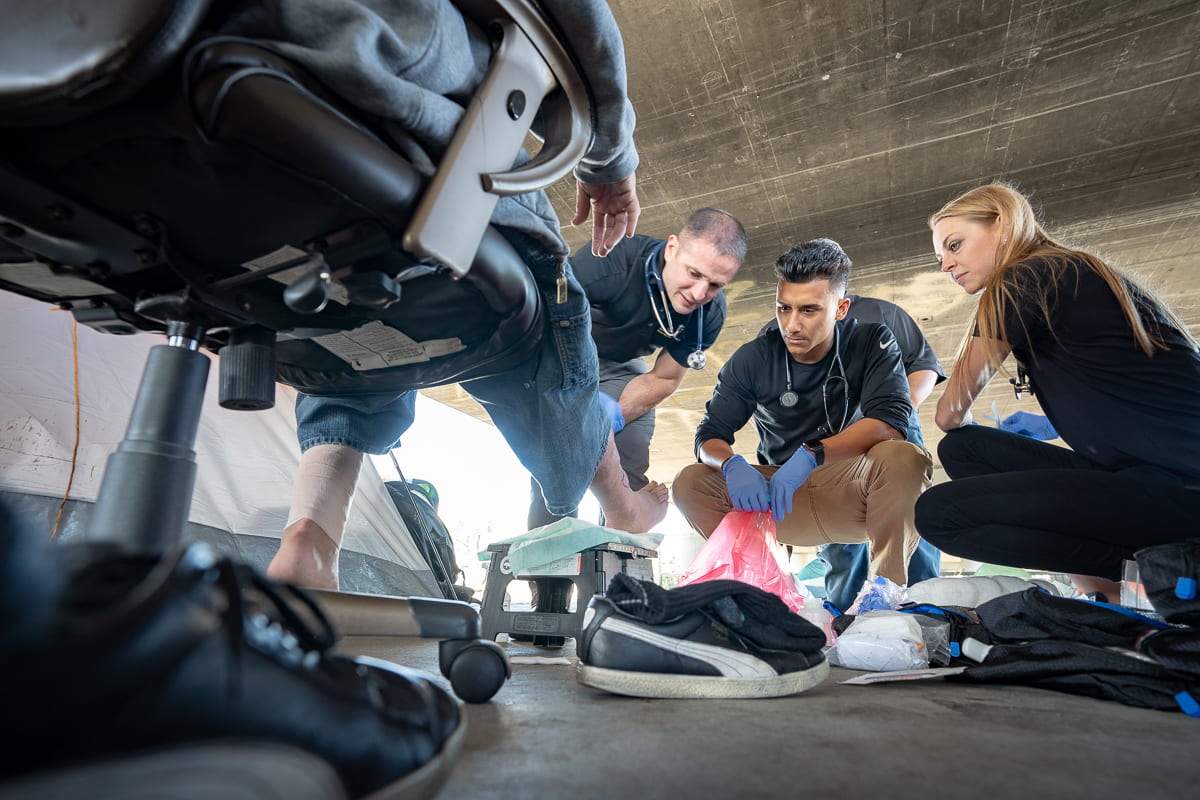The Health Resources and Services Administration (HRSA) has awarded a team at USC $1.5 million to enhance primary care training for physician assistant students, in an effort to support future clinicians to work with vulnerable populations, support wellness in providers, address inequities in health care and provide proper training to tackle the growing opioid crisis.
“The grant allows us to empower our students so that they have the right tools and resilience to facilitate change,” shared Corinne Feldman, MMS, PA-C, clinical instructor of family medicine (clinician educator) at the Keck School of Medicine of USC and principal investigator on the grant.
The grant focuses on implementing and studying programs related to street medicine and social justice over the next five years within the Primary Care Physician Assistant (PA) Program curriculum. Titled, the Project for Underserved Equity-Based Primary Care Education (USC-PeaCE), the grant will begin with the creation of a pipeline of PA students equipped to provide primary care to underserved populations with an emphasis on unsheltered homeless individuals.
“Our students already have a history of graduating and working in underserved populations and the grant will allow us to better train them in the didactic and clinical phase by using the street medicine framework, for all of those vulnerable populations,” said co-principal investigator and director of street medicine at the Keck School, Brett Feldman, MSPAS, PA-C, clinical assistant professor of family medicine (clinician educator).
By integrating evidence-based course work into the PA Program, students can build skills and confidence in the areas of health equity, mental health and substance abuse disorders, including opioid addiction and systematic wellness for faculty, providers and trainees. Beyond the classroom, students will participate in targeted clinical experiences with a rotation in primary care street medicine to be piloted by the second year. Additionally, the grant includes funding for faculty development to enable the enhanced curriculum with emphasis on equity-based primary care and wellness curriculum.
A major part of the grant focuses on supporting scholarships for veterans to matriculate into the PA program. Specifically, the HRSA grant funds a veteran community liaison, who will recruit and mentor veterans entering the PA profession.
“This is a new era of veteran health care and I think our patients will be better served by having veterans in the classroom and having them as part of our clinical rotations, especially on street rounds,” Corinne Feldman said.
Another element that the grant will support is funding the required training of students in medical assisted treatment (MAT) for opioid addiction. In addition to the X-waiver training, students will be exposed to responsible practices for prescribing opioids in their didactic phase, get firsthand knowledge of the use of opioids on the street and work with health care providers who specialize in this area.
“The ideas of diversity, equity, vulnerable populations and social determinants of health are incorporated into most medical schools already, but the problem is when our students graduate they see patients with vulnerabilities and their expectation falls short of being able to impact our patients, which leads to moral distress and burnout,” Brett Feldman reflected. “We are teaching future providers to be prepared for that.”

